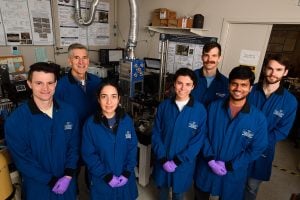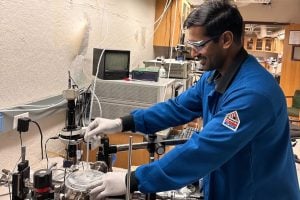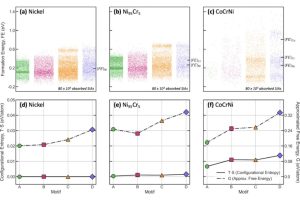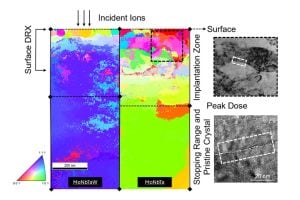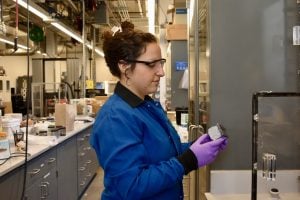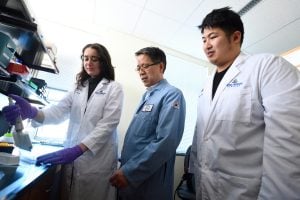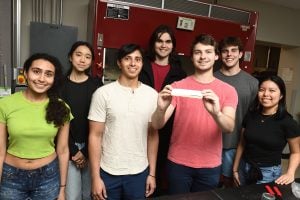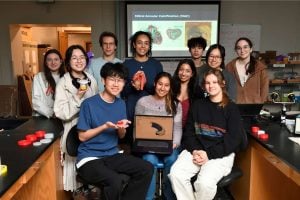Recent News
-

A Johns Hopkins-led research alliance across the country seeks to understand and mitigate the world's most lethal weapons
-

AI Lab Assistant Gets a PhD in Materials: New Tool Predicts Material Properties in Seconds
CategoriesJohns Hopkins professor creates a ChatGPT for materials scientists, providing accurate answers to complex questions in the field.
-

Particle Power
CategoriesResearchers show how atom interactions in a certain class of alloys can make a big impact.
-

Stringing Together Small Switches
CategoriesHopkins researchers make unique polymers and test them in transistors to improve sustainable energy solutions
-

Ever since Hadas Elazar-Mittelman was a child, she had an interest in chemistry and materials science.
-

Hard-Core Batteries
CategoriesTo make solid-state batteries tougher, a materials science and engineering student is rethinking what goes into the cathode—and how it holds up under pressure
-

Reduce, Reuse, Drywall!
CategoriesJohns Hopkins students team up with a startup to engineer drywall that’s strong, sustainable, and carbon-negative
-

Skipping the Stitches
CategoriesMaterials science students engineer a suture-free mitral heart valve designed to reduce surgery time and risks
